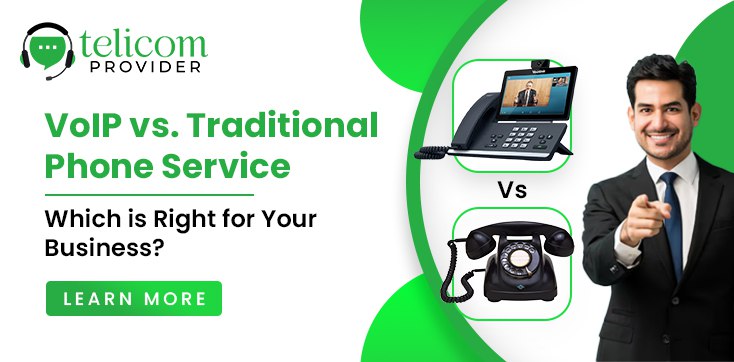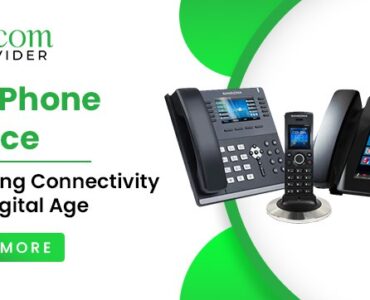VoIP vs. Traditional Phone Service: Which is Right for Your Business?
VoIP vs. Traditional Phone Service: Which is Right for Your Business?

In today’s digital age, businesses have more options than ever when it comes to communication. Two popular choices are Voice over Internet Protocol (VoIP) and traditional phone service. But how do you decide which is best for your business? Let’s break down the differences between VoIP and traditional phone service to help you make an informed decision.
What is VoIP? VoIP, or Voice over Internet Protocol, uses the internet to transmit phone calls. Instead of relying on traditional phone lines, VoIP converts voice signals into digital data packets that travel over the internet. This technology allows for more flexibility and features compared to traditional phone service.
What is Traditional Phone Service? Traditional phone service, also known as Plain Old Telephone Service (POTS), relies on copper wires and physical telephone lines to transmit calls. It’s the traditional way of making phone calls, using a dedicated phone line connected to each device.
Cost Comparison One of the biggest differences between VoIP and traditional phone service is cost. VoIP typically offers lower monthly rates and cheaper long-distance and international calling rates compared to traditional phone service. With VoIP, businesses can often save money on their monthly phone bills.
Features and Flexibility VoIP also offers a wide range of features and flexibility that traditional phone service may lack. Features like voicemail-to-email, call forwarding, auto-attendants, and mobile integration are common with VoIP systems. Additionally, VoIP allows employees to make and receive calls from anywhere with an internet connection, making it ideal for remote work and mobile teams.
Reliability and Call Quality While VoIP has come a long way in terms of reliability and call quality, some businesses may still prefer the reliability of traditional phone service. Traditional phone lines are not susceptible to internet outages or bandwidth issues, which can sometimes affect VoIP call quality.
Scalability VoIP systems are often more scalable than traditional phone systems. With VoIP, businesses can easily add or remove phone lines as needed without the hassle of installing new physical lines. This scalability makes VoIP ideal for businesses that are growing or have fluctuating communication needs.
Conclusion In the end, the decision between VoIP and traditional phone service depends on your business’s unique needs, budget, and preferences. VoIP offers cost savings, flexibility, and advanced features, while traditional phone service may provide reliability and familiarity. Consider your priorities and weigh the pros and cons of each option carefully before making a decision.






